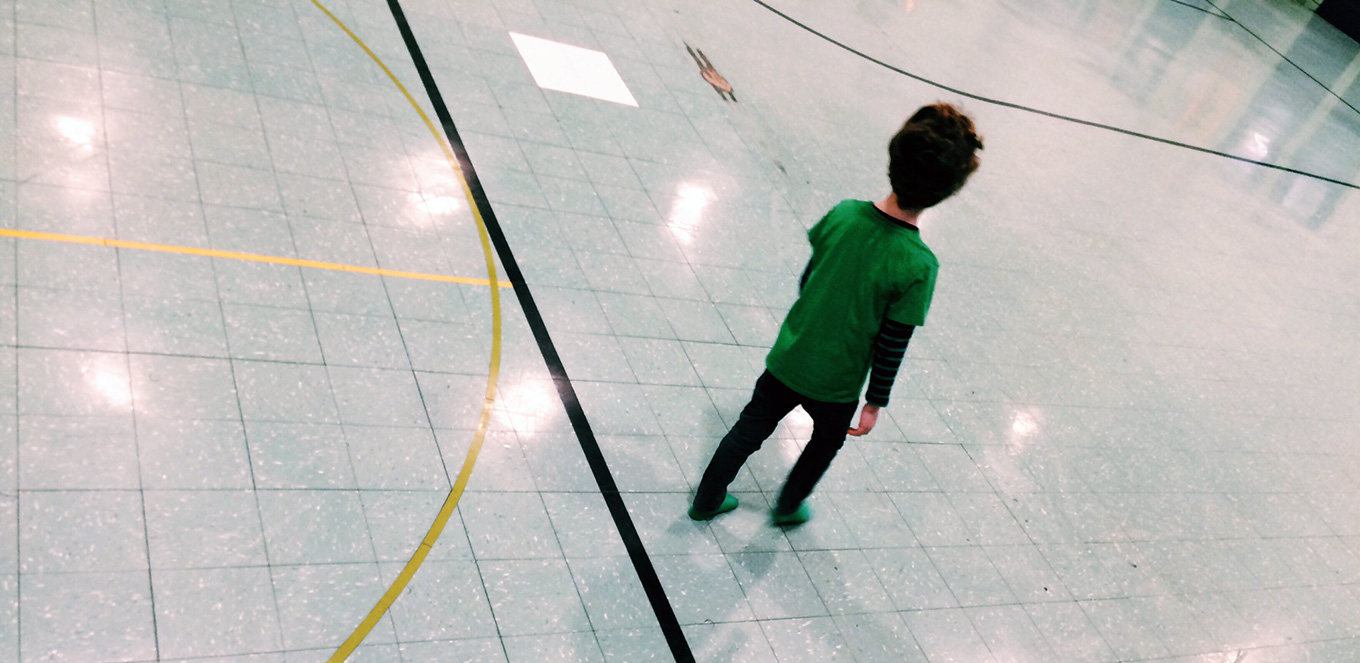 Here are some things I’ve read this past month that I found helpful, informative, or inspiring. If you like this and find it helpful, please share with others. Thanks!
Here are some things I’ve read this past month that I found helpful, informative, or inspiring. If you like this and find it helpful, please share with others. Thanks!
Divisions in the autism community. The tragic murder of little London McCabe this month has sparked a lot of discussion about how autism is represented in the media and elsewhere. In a Facebook post which argues that divisiveness in the autism community might actually be a good thing, the always excellent Invisible Strings writes, "Today, thanks in large part to the internet and social media, autistics are contributing their own perspectives. Turns out: we have a slightly different view of things. We don't want to be hidden away or eradicated. We want respect.” He goes on to write, "Negative views about autism are the norm...and for too long, they were the only view. Division means that new voices are being heard. This is good.” Read more.
Ido in Autismland: My Speech at the Autism Society Self Determination Conference. Ido shares a recent speech he gave. "I warn you about one thing though. A consequence of teaching autistic people to type is that we have opinions and we have determination. Once we can express them we will demand a voice in our own futures.” Read more
Jerry Seinfeld and Autism. This month, Jerry Seinfeld said he has come to believe he is somewhere on the autism spectrum. Reactions to his comments ranged from supportive to outraged. John Elder Robinson, author of Look Me in the Eye, offered an interesting point of view, including this: "The 'my autism is worse than yours' is a counterproductive and destructive way of thinking. Look at depression and Robin Williams. He looked pretty successful and functional a few month back, didn’t he? But now he’s dead. None of us can know the struggles of another. There is no better and worse in autism’s affect.” Read more
Therapy for autism may alter brain activity, behavior. A preliminary study shows promise for Pivotal Response Therapy. "Following the treatment, seven children with autism showed enhanced activity in the medial prefrontal cortex — a brain region known to be involved in social cognition. By contrast, six untreated children with autism showed a slight decrease in brain activity in this region.” We’ve had positive experiences with this form of therapy for C. Note: this study is preliminary and small, and should be taken with a grain of salt until more studies and reviews can support its thesis. Read more
Rise in autism fueled mainly by diagnostic changes. Yet another study, this time out of Denmark, which suggests there is not really an “epidemic” of autism. This particular study, "published 3 November in JAMA Pediatrics suggests that up to 60 percent of the increase in autism prevalence in Denmark between 1980 and 2011 stemmed from diagnostic changes in that country.” The other 40% was attributed to greater general autism awareness. As for that so-called epidemic, the article notes that “…most people who talk about an ‘epidemic’ of autism in the U.S. are referring to a chart that maps the disorder’s dramatic rise after 1985. But many of them may not know that autism didn’t exist as a diagnosis until 1980. Before that, it was called childhood schizophrenia.” Read more
JRC Survivor Speaks Out (Part 1 of 4) "Hi, my name is Jennifer. I am diagnosed on the Autism Spectrum. Like so many of us, I have endured restraint, seclusion and aversives throughout my life, including seven years at the Judge Rotenberg Center. This is some of my story.” A four-part essay on the horrors inflicted to this date upon autistic individuals at the JRC. Start reading (part 1)
Naturopathy vs. Science: Autism Naturopaths are hopping on the "cure autism" bandwagon, supporting all manner of unproven, often dangerous and painful treatments. Read more
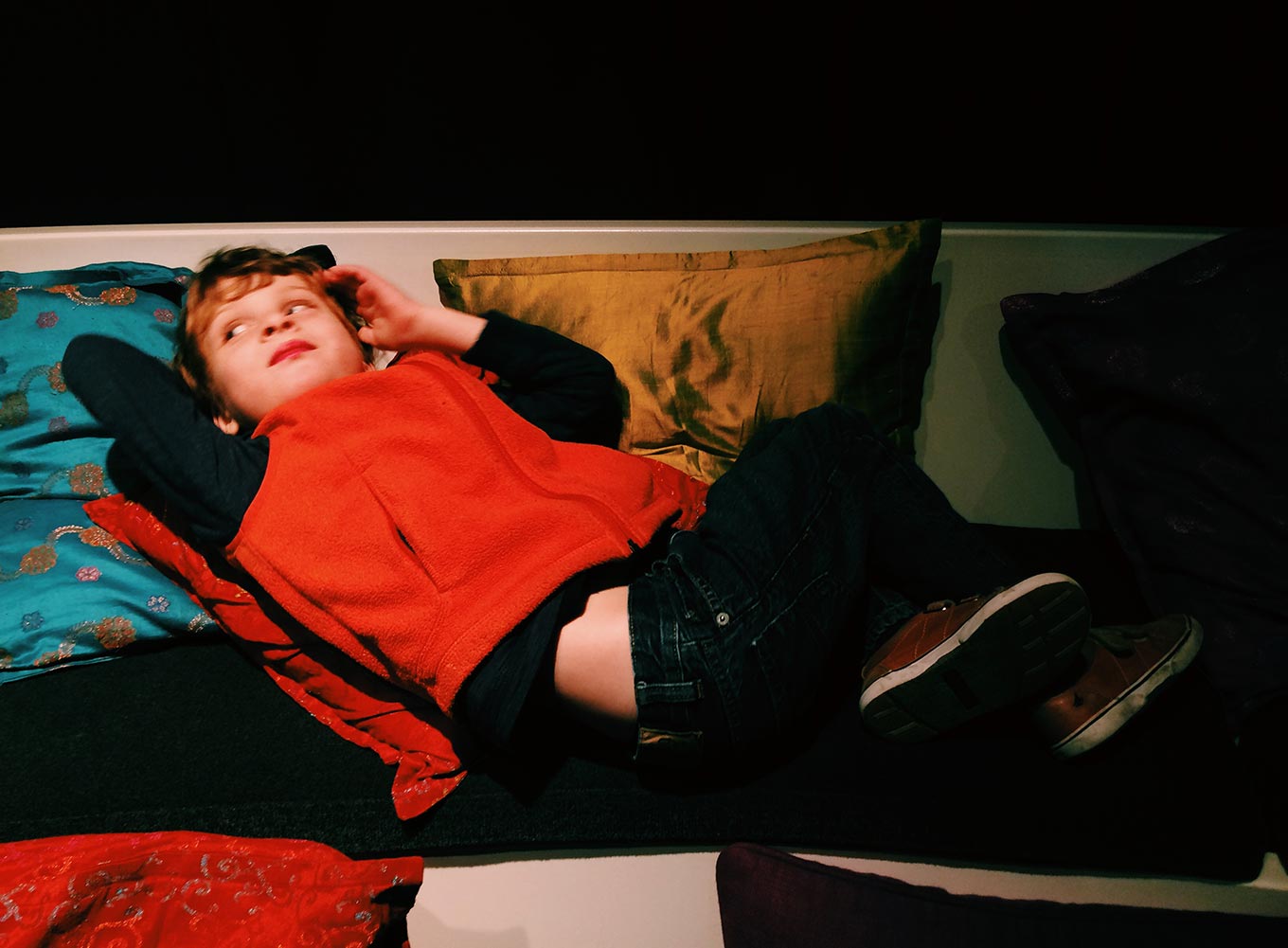 I have not always been the most grateful person. In fact, when I used to hear people talk about how gratitude was a gift, I thought they were being a bit disingenuous.
I have not always been the most grateful person. In fact, when I used to hear people talk about how gratitude was a gift, I thought they were being a bit disingenuous.
 Here are some things I’ve read this past month that I found helpful, informative, or inspiring. If you like this and find it helpful, please share with others. Thanks!
Here are some things I’ve read this past month that I found helpful, informative, or inspiring. If you like this and find it helpful, please share with others. Thanks!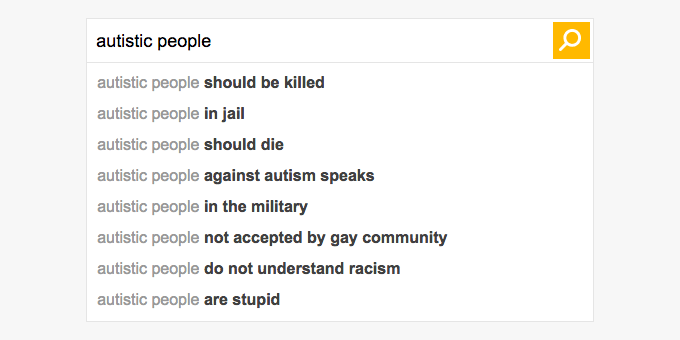
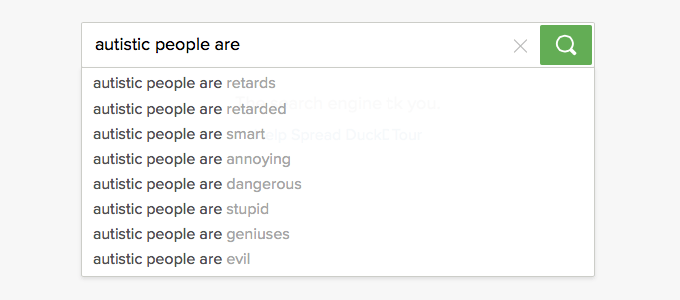
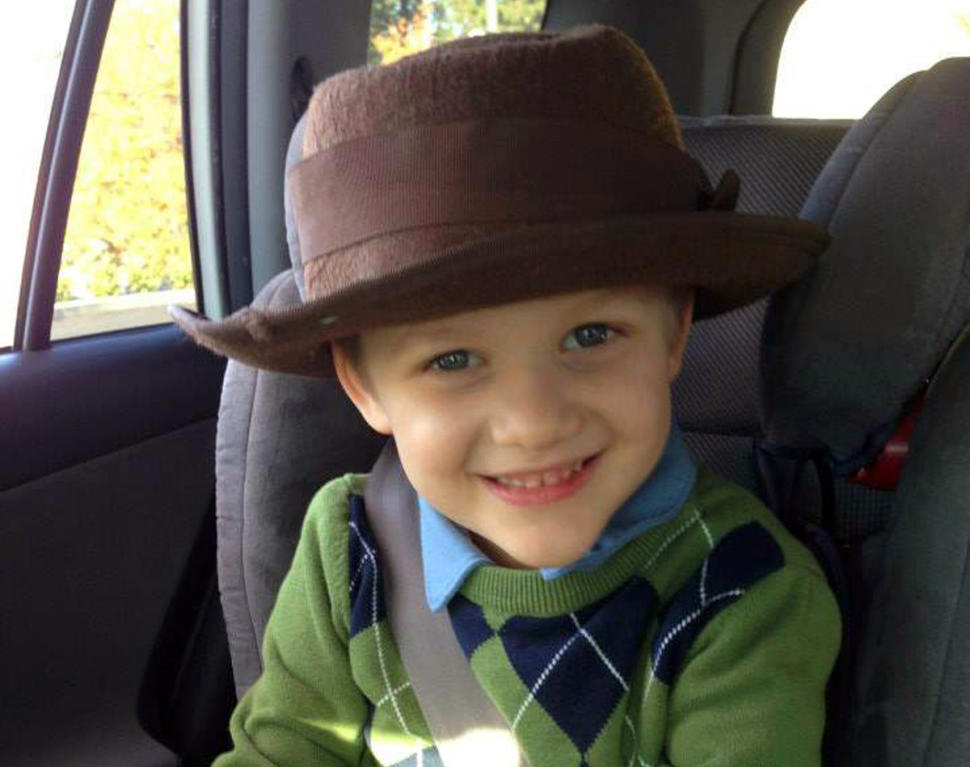 If you follow autism news, you're going to hear a lot about six-year-old London McCabe's parents in the coming days and weeks. London's mother
If you follow autism news, you're going to hear a lot about six-year-old London McCabe's parents in the coming days and weeks. London's mother